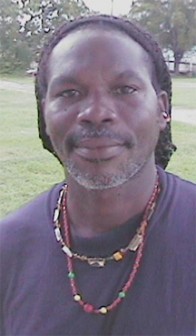Mahdia has the potential to produce top national players but the talent has to be harnessed, according to table tennis coach, Ray ‘Capta’ Anderson.
In an exclusive interview with Stabroek Sport, Anderson said he spent 13 days in the mining community and was able to reach 43 students, all of whom have shown tremendous interest in the game.

“They were elated because it was the first time that a qualified coach showed up. So they were enthusiastic and energetic and wanted to go.” He said the students knew the sport but did not have anyone to teach them the technical aspects of it. “It was the first time they had the opportunity to interact with a qualified coach and they took it with both hands.”
Anderson said the students were drawn from the Mahdia secondary and primary schools. Thirteen of the players were from the primary level while the remainder were from the secondary level.
“The training programme was done under the auspices of the International Table Tennis Federation (ITTF) because we want to increase the knowledge base countrywide and improve the coach-to-player ratio.”
According to Anderson, the training session was more or less a ‘teach them young programme’ which saw the students being taught the basics of the sport: “That’s the grip, stands and serve.”
He said that at the time of his departure from the community the students had a fair understanding of the game. “They were at the point where they could play games with you and [knew] how to count each point. They knew how to serve, stand, retrieve services and to count the games properly. Basically they improved their general game, …they asked a lot of intelligent questions because they wanted to learn.”
Anderson said he did not have the opportunity to work with an adult in the community as it was not part of his programme. Going into the community for the first time, Anderson said, he was only prepared to work with the students.
“To work with an adult you need to identify someone who has a love for the sport and want to help them [the students] in your absence. For me to earmark someone to continue, there has to be another coaching programme in Georgetown, pick somebody who can do it – impart some knowledge into them and intermittently somebody goes back to follow-up the programme I started.”
Anderson said he plans to return to the community before year-end as he hopes to run off a tournament. The community, he said, has talent, and a tournament would allow for the selection of the best players of the group.
According to Anderson, he is proud to see students who were under this tutelage competing in the Digicel-sponsored schools championship. Those students, he said, were part of a similar programme he had conducted in Mahdia.
“It all comes down to what the Guyana Table Tennis Association is doing to decentralize and resuscitate table tennis countrywide.”
Next year, he said, at least two teams from the community will be registered at the schools championship.
The community has three tables at the secondary school that were donated by Roger Hinds and the third at the dormitory, which was donated by one Gobin.
“I think they can do with at least one more table, where the dormitory is. It’s close to seven minutes’ walk from the high school and 61 kids are living in the dormitory. So if the programme continues we can get more than just the 40-something kids that I have worked with.”
The only challenge now is to have the players compete in a tournament where prizes are up for grabs. The prizes, he said, will serve as a motivational tool.
He said too that it has to be instilled in them that they are no less than the other players in Guyana. “Once you are in Guyana, you can be among some of the best players in the world, all you have to do is apply yourself.”
He noted that Bartica is not short of support from the private sector community, but the money received has to be channeled in the right direction.




